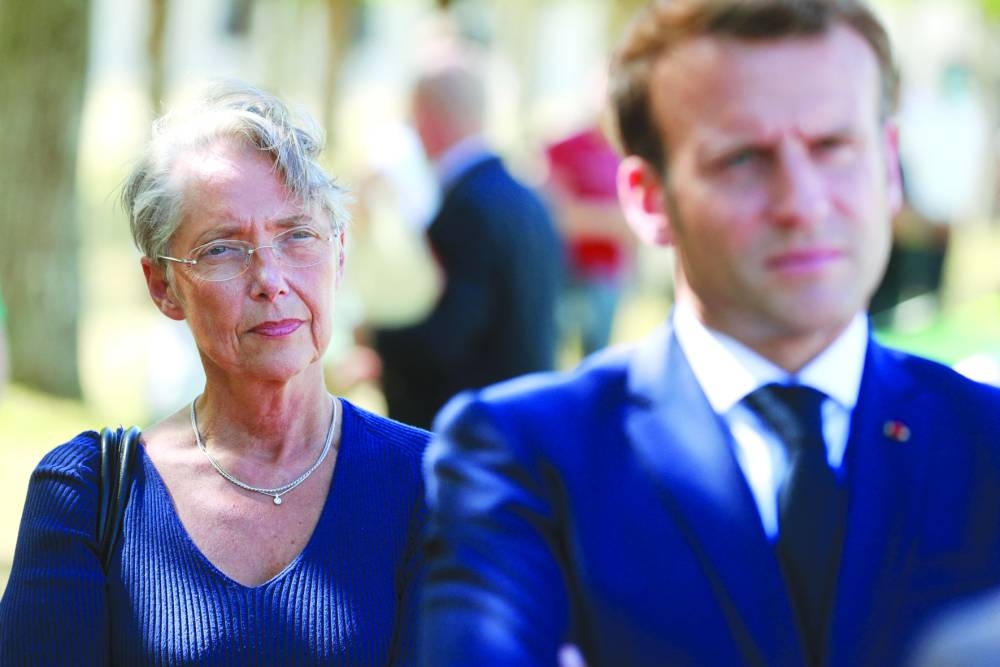French Prime Minister Elisabeth Borne resigned yesterday as President Emmanuel Macron prepared to unveil a long-awaited cabinet reshuffle in a bid to give new momentum to the final three years of his presidency.
After days of intense behind-the-scenes manoeuvring, Education Minister Gabriel Attal, 34, was emerging as the favourite to succeed Borne, whose successor has yet to be named.
If appointed, Attal would be France’s youngest ever prime minister.
“Ms Elisabeth Borne today submitted the resignation of the government to the president, who accepted it,” the presidency said in a statement.
Commentators see the reshuffle as essential to relaunch Macron’s centrist presidency for its last three years and prevent him becoming a “lame duck” leader after a series of crises.
Since he defeated the far right to win a second term in 2022, Macron has faced protests over unpopular pension reforms, the loss of his overall majority in parliamentary elections and controversy over immigration legislation.
Borne, 62, the second woman to lead the French government, has weathered these problems but never dispelled doubts about her future.
Writing on X, Macron thanked her for “work in the service of our nation that has been exemplary every day”, without explicitly mentioning her resignation.
Other than Attal, the possible candidates to succeed Borne include 37-year-old Defence Minister Sebastien Lecornu and 43-year-old former agriculture minister Julien Denormandie.
But a source close to the government said that Attal was now the favourite to succeed Borne.
Under the French system, the president sets general policies and the prime minister is responsible for day-to-day government management, meaning the latter often pays the price when an administration runs into turbulence.
There had been speculation the reshuffle would be announced late last week. But no news emerged over the weekend, with Macron reportedly weighing his options in seclusion at his La Lanterne residence on the grounds of the Palace of Versailles.
Francois Bayrou, leader of the centrist MoDem party, whose early endorsement of Macron was key to his initial 2017 election success, told BFM TV that a change in government makeup was “necessary”.
While Macron cannot run again in 2027 presidential elections, relaunching his government is seen as crucial to help prevent far-right figurehead Marine Le Pen becoming president.
European Parliament elections in June will also pose a major test, with Macron’s Renaissance party risking embarrassment at the hands of Le Pen’s National Rally (RN).
Despite his age, Attal is a more political figure than the technocratic Borne, and polls have shown him to be one of the most popular government ministers.
If named, he would go toe-to-toe ahead of the European elections with another rising star of French politics, the even younger Jordan Bardella, just 28, who is now party leader of the far-right RN.
Other key posts are also subject to uncertainty.

Outgoing French prime minister Elisabeth Borne (left) and President Emmanuel Macron. (AFP)
